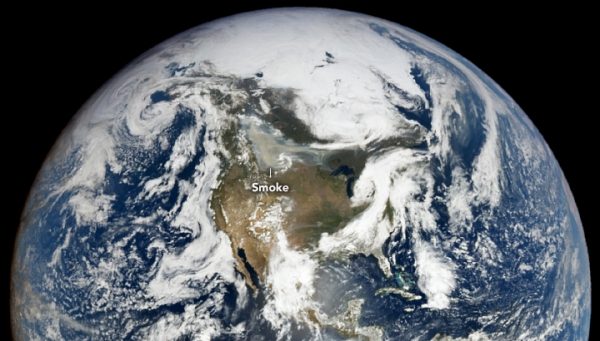For remote sensing scientists who track the movement of smoke plumes, May 2023 has been a wild, memorable month due to extreme fire activity in northwestern Canada.
Early spring always brings elevated fire risk to Alberta, Saskatchewan, and the northeastern edge of British Columbia—naturally dry areas that lie in the rain shadow of the Canadian Rockies. There is a period each year, after snow melts but before spring growth begins, that dry forest undergrowth is exposed.
But in May 2023, this naturally fire-prone dry period coincided with unusually hot and windy weather, turning what normally would have been small, short-lived fires into huge wildland blazes that raged for several weeks. The fires, ignited by lightning or human activity, charred more than 1 million hectares (400 square miles) as of May 24, and lofted smoke high into the atmosphere and across North America.
Read more at: NASA Earth Observatory
Photo Credit: NASA Earth Observatory by Lauren Dauphin


